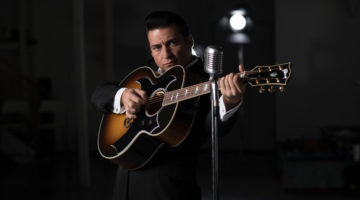Florida’s Rubio, a ’16 prospect, makes most of Cuba hearing
PHILIP ELLIOTT, Associated Press
WASHINGTON (AP) — Back in the Capitol after a week spent raising money for a likely White House campaign, Sen. Marco Rubio didn’t miss the chance offered by his day job to service his presidential aspirations.
The Florida Republican on Tuesday led his first hearing since his election to Congress in 2010, and with the gavel of a subcommittee chairman in hand, he left little doubt as to his thoughts on President Barack Obama’s new policy toward Cuba.
“I think it is no secret — and I have publicly stated — that I have deep reservations and, in many instances, direct opposition, to many of the changes that we’re going to review here today,” Rubio said as he opened the hearing.
A Cuban-American whose parents fled the island before Castro came to power, Rubio made the rounds of television shows and other media interviews after Obama announced his plans to restore diplomatic relations with the island nation.
But any potential candidate can give an interview. His perch as a member of the Senate Foreign Relations Committee gives Rubio the natural opportunity to become comfortable with and talk about international relations.
That can be an advantage over the Republican governors considering the race. Over the weekend, for example, when asked about the Islamic State group, Wisconsin Gov. Scott Walker said he would “go beyond just aggressive air strikes. We have to look at other surgical methods.” Asked if that meant sending U.S. troops into Syria, something polls show voters in both parties don’t like, Walker said he would not rule that out.
The Cuba issue arrived for Rubio as he’s trying to decide whether to run for re-election to the Senate or to seek the GOP’s White House nomination. He’s said often he will seek one or the other, but not both.
On Tuesday, Rubio aggressively questioned two senior State Department officials about Obama’s moves to relax the longstanding economic embargo against Cuba. At times, he sounded more like a prosecutor than a legislator.
“When did you first learn about these negotiations?” Rubio asked. There were more questions: “When did you learn about the policy changes that were negotiated?” ”In the two months that you knew about it, were you involved in the negotiations?” ”Was anybody at the State Department involved in the negotiations?” ”Who were the lead negotiators for the United States?” ”Were you consulted or regularly briefed by the negotiators?”
Rubio was hardly alone in offering testy rhetoric. Sen. Robert Menendez, the top Democrat on the Foreign Relations Committee and a former chairman of it, bristled at the deal and at times was harsher to witnesses than was Rubio.
“Eighteen months of secret negotiations produced a bad deal,” Menendez said.
Bad deal, maybe. But it is terrific politics for Rubio. During his hearing, he allowed two Cuban activists to testify to the panel in Spanish.
Activist Bera Soler ended her testimony by shouting “Cuba, si; Castro, no.”
“That last statement,” Rubio said dryly, “needed no translation.”
[livemarket market_name="KONK Life LiveMarket" limit=3 category=“” show_signup=0 show_more=0]



No Comment